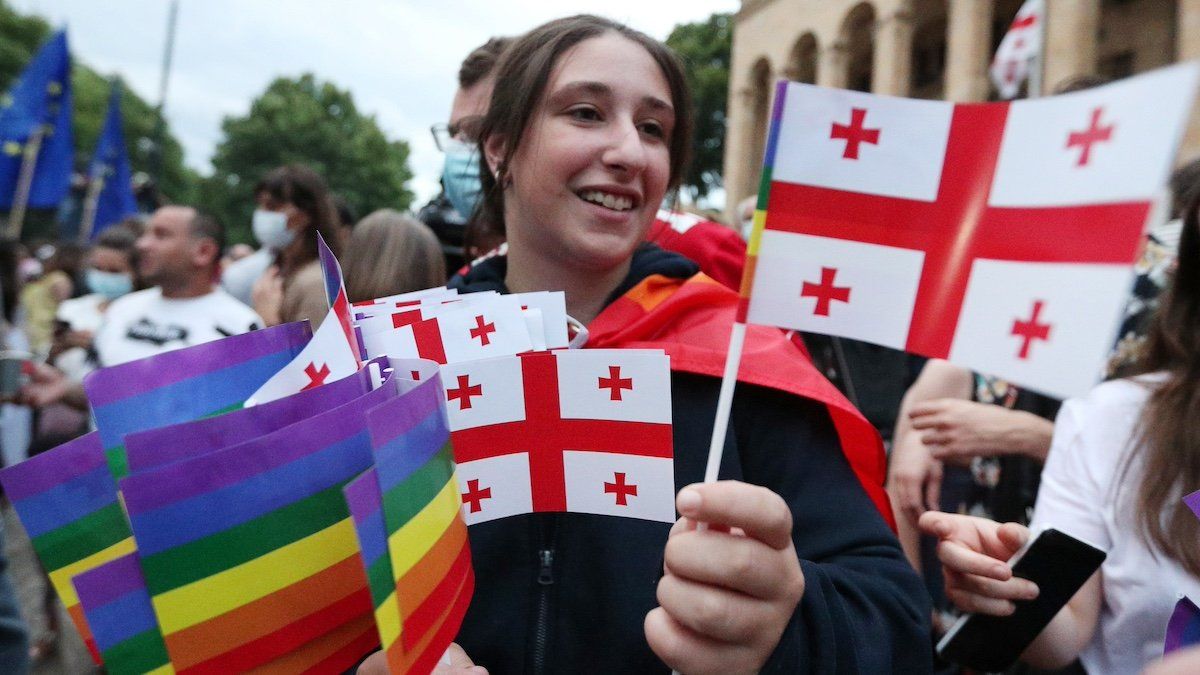June 06, 2024
Pride Month is sure to look different in Georgia this year – and may soon disappear forever.
This week, the Eurasian country – not the US state – introduced legislation aimed at curtailing civil liberties for LGBTQ+ people. The draft text includes a ban on same-sex marriages, same-sex adoptions, gender-affirming care, endorsement of same-sex relationships at gatherings and educational institutions, plus any same-sex depictions in media.
Over a decade ago, the South Caucasus republic became one of the few post-Soviet states to enshrine anti-LGBTQ+ discrimination into law. So, why the 180-degree change?
The Georgian Dream ruling party, in power since 2012, has been slowly shifting the country’s alignment away from Brussels and toward Moscow. This year, thousands protested Georgia Dream’s foreign agent law, which opponents say is identical to a law used by the Kremlin to crush dissent. Huge demonstrations and a presidential veto couldn’t stop the bill from passing.
But don’t expect mass protests against the similarly Kremlin-aligned anti-LGBTQ+ legislation. Tbilisi has repeatedly canceled Pride Marches after right-wing protesters violently stormed the celebrations, and much of Georgia’s majority Orthodox Christian society is likely to support the measures in the name of national and religious identity.
Tinatin Japaridze, a Georgian-born regional analyst at Eurasia Group, says the Georgian Dream party is pushing this legislation to serve them politically and shore up conservative support.
Without a strong coalition to oust Georgian Dream, she says “they will continue to adopt and adapt the Russian playbook in a way that they hope will keep them in power for as long as possible.”
More For You
Hellenic coast guard performs SAR operation, following migrant's boat collision with coast guard off the Aegean island of Chios, near Mersinidi, Greece, February 4, 2026.
REUTERS/Konstantinos Anagnostou
15: The number of migrants who died after their boat accidentally collided with a Greek Coast Guard vessel in the Aegean Sea on Tuesday. Two dozen people were rescued.
Most Popular
Walmart is investing $350 billion in US manufacturing. Over two-thirds of the products Walmart buys are made, grown, or assembled in America, like healthy dried fruit from The Ugly Co. The sustainable fruit is sourced directly from fourth-generation farmers in Farmersville, California, and delivered to your neighborhood Walmart shelves. Discover how Walmart's investment is supporting communities and fueling jobs across the nation.
Workers repair a pipe at a compound of Darnytsia Thermal Power Plant which was heavily damaged by recent Russian missile and drone strikes, amid Russia's attack on Ukraine, in Kyiv, Ukraine February 4, 2026.
REUTERS/Valentyn Ogirenko
Democratic Alliance leader John Steenhuisen announced Wednesday that he will not run for a third term as leader of the liberal, pro-business party, after months of internal pressure over a host of controversies – including allegations, since cleared, that he used the party credit card for Uber Eats.
© 2025 GZERO Media. All Rights Reserved | A Eurasia Group media company.
